How a corporate advisory king found the Pies super coach
After 20 years together, Mark Korda says the secret of sucess with Mark Mentha is their antenna-like ability to read each other. And a very good work psychologist.
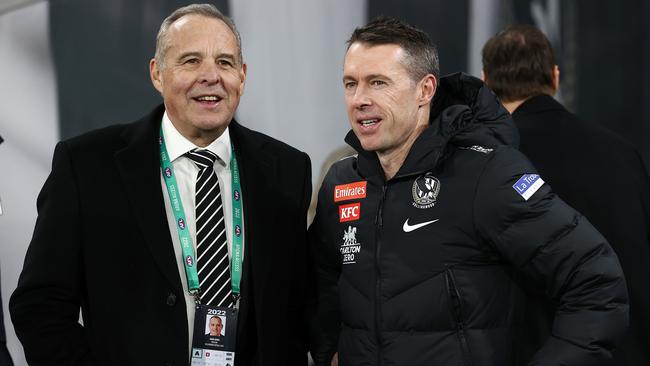
The Grace Park Lawn Tennis Club in Melbourne’s leafy inner east has always held a special place in the life of Mark Korda.
Now known as the Grace Park Hawthorn Club, it is where his parents – both fine tennis players – met in the early 1960s after his father fled Czechoslovakia in 1946, a part of Europe then torn apart by violence, a coup, occupation and war.
Grace Park is now a mere 400m from the Korda family home.
Korda’s father, known as George – his real name was Jiri – was the only son of an only son. In Czechoslovakia the family had a haberdashery store in a town call Pilsner, 100km west of Prague. Korda proudly retains some photos of their shopfront.
But in Russian-occupied Czechoslovakia after World War II, they were targets of Stalin’s totalitarian regime.
“Dad’s mother and grandfather got put in detention from time to time, because they were still relatively successful. He told me the story once that the Russians one day told them ‘Whatever you have in your bank account, then divide it by 10. So there’s communism for you,” Korda quips.
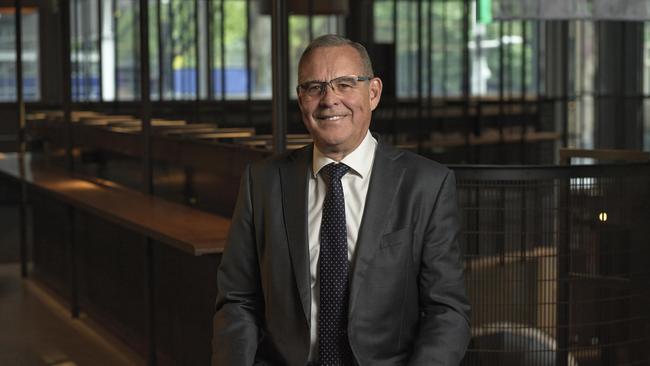
“Dad could never go back there for decades because he had to sign a declaration that he supported the regime, and he wouldn’t do that.
“So it wasn’t until the Berlin Wall came down and the Czech Republic got established that he could go back into the country to see his mother.”
Korda’s father died in 2018 but his mother, Gwen, is still alive, going strong at the age of 92 and a passionate supporter of the Collingwood football club.
“She hailed from Brunswick (which played in the VFA from 1897 until 1991). They were known as the Magpies and wore black and white guernseys,” Korda says.
“When we were younger, we would go stay at my Pop’s place and we would go to the footy and mainly watch Brunswick. It is the reason I became a Collingwood supporter.”
Korda, who grew up at Mitchum in Melbourne’s outer eastern suburbs and went to Whitefriars College, Donvale and Swinburne University, is best known in the business world as the co-founder of boutique advisory and investment group KordaMentha.
But he was also the president of the Collingwood Football Club board that appointed star Magpies coach Craig McRae and highly respected football boss Graham Wright to their roles in 2021. It’s this duo who has taken the team into this weekend’s AFL Grand Final.
Korda took the reins from Eddie McGuire in February 2021 after being vice-president for many years.
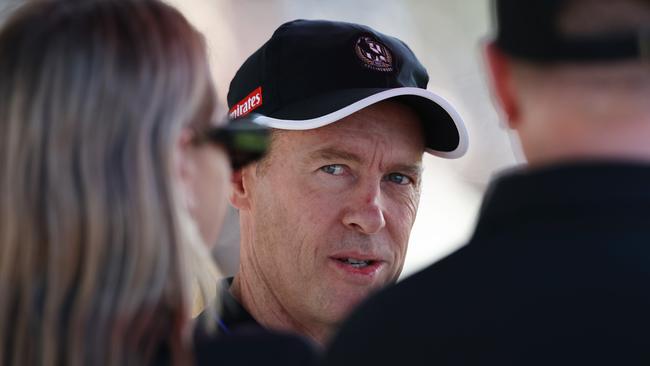
During his short presidency he worked to minimise the Covid-19 pandemic’s financial impact and fallout from the now infamous racism scandal, on the club while also engineering the departure of the club’s favourite son, Nathan Buckley, as coach.
“Nathan Buckley agreed that it was the best thing for the football club for him to move on and you’ve seen my quotes on him before; he did an unbelievable job. That allowed us to get into a proper process,” Korda says, noting there was “no process” for the appointment of the last Magpies premiership coach, Michael Malthouse, in 2000.
“So we had a subcommittee with (vice president) Paul Licuria and we went through 90 coaches in the AFL and VFL, created a database on win-loss record, personal attributes and all that.
“It was a comprehensive process to arrive at a shortlist for the subcommittee and then for the board to do the interviews, which culminated in Craig McRae.”
Korda isn’t surprised by McRae’s subsequent success to take the club to a grand final after just two years at the helm.
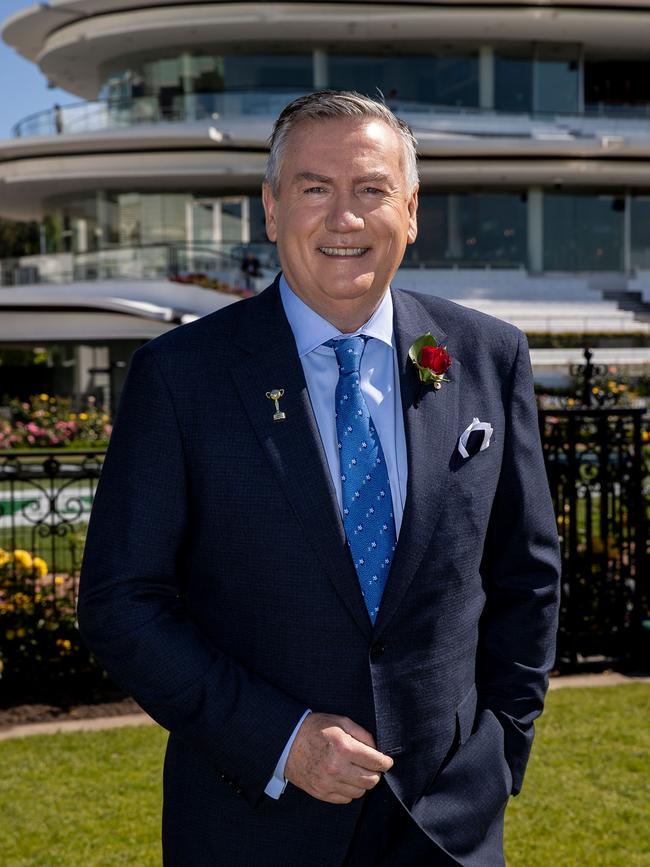
“What surprised me was that during our process we could unearth him. He was clearly the outstanding candidate,” he says.
“You can always have that hypothesis. But that has been proven to be correct. The process also wasn’t just about Craig, it was also putting the assistant coaches behind him.”
But amid the boardroom upheaval that split the club for a time in 2021 when Korda was criticised as being part of the old regime, he stepped aside from the presidency at the end of that year following a carefully orchestrated coup by now ’Pies president Jeff Browne.
Korda left the board at the end of the 2022 season after 15 years as a director and was given a life membership by Browne, who has also paid tribute to his predecessor’s financial stewardship of the club.
Korda says there are no hard feelings with his successor.
“Your overriding philosophy if you want to be a director of a company is you had better leave it in better shape than when you started. So from a finance point of view, we had $15m of debt with Westpac when I took over and half a million of net assets,” he says.
“We now have no debt, a future fund of $20m and assets of $45m. So from the finance point of view, I could say I am proud of that.
“My legacy at Collingwood should be good corporate governance and my involvement in the professionalising of the football club, which manifested in a really good process to find a new coach.”
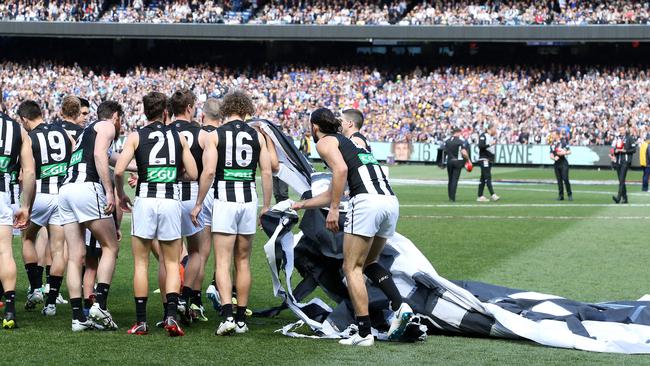
While his mother no longer goes to games, she still watches every ’Pies match on television.
“I was over at her place the day after our win in the Qualifying final against Melbourne,” her son says.
“She told me ‘I’ve watched the whole match again this morning and God it’s not good for me at my age’!”
Questioned whether he feels his Collingwood legacy gets the plaudits it deserves, Korda replies bluntly in his trademark, matter-of-fact tone.
“Does it really matter?” he asks back.
“I think the collective Collingwood board over a long period of time has helped get the club in a lot of Grand Finals.
“We made the hard decision on changing the coach and made the hard decision on removing a number of players, which has culminated in where we are today.
“So I would hope the new board and everybody else appreciates that, ‘Hey, all we did was the best job we could to move the legacy to the next board’. I think you could put a big tick in that box.”
No shirking challenges
Korda began his career at former global accounting powerhouse Arthur Andersen, making partner at age 31 before joining forces with Mark Mentha to co-found KordaMentha on April 15, 2002.
Their first assignment was one of Australia’s biggest-ever insolvencies, the collapse of Ansett, with its 16,000 employees and debts of more than $1bn.
In the years that followed they also worked on the collapse of fabric and clothing group Bradmill, Brashs music and Bob Ansett’s Budget Rent-A-Car.
Korda Mentha now has 400 staff and has been expanding beyond insolvency into investment banking, restructuring and even property syndication and funds management.
Over the past year it set up a financial crimes division focused on anti-money laundering and counter-terrorism sanctions, which is growing rapidly.
“Companies have certain requirements to comply with the law and we are helping them do that. So we started with six people 12 months ago and we’ve probably got 25 at the moment,” Korda says.
“So in the war for talent, we’ve had no issues getting really good people.
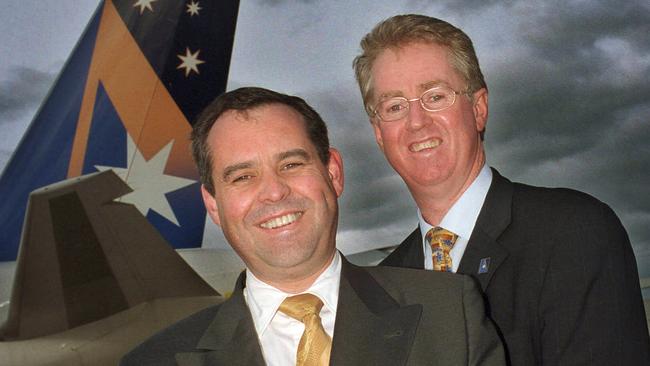
“We have very good relationships with most regulators. We are respected by them and understand them. I think with everything that is happening in the world, we are big enough and have a big enough brand and platform and culture to attract these people.”
Another growing part of the firm is its forensic accounting practice, which is supported by 10 former Australian Federal Police officers.
The core restructuring business, which Korda says is “picking up a bit at the moment”, still represents 40 per cent of revenue.
After almost 20 years together in business, he says the secret of his union with Mentha has been their antenna-like ability to read each other and complement each other’s skills.
“The shortest phrase I can give you is, one person can only lift so much. Two people together can lift so much more. I think that’s been the key,” he says.
“Mark is very good at business. I’m very good at numbers.”
For 18 years KordaMentha has employed a psychologist, Yvonne Willich, who is the keeper of the firm’s values. She has also helped the two principals manage their relationship at times.
“Sometimes we might talk to her about a difference of opinion we have, but it’s in an environment where we’re trying to find a solution,” Korda says.
Willich is about to move to a part-time role, and the firm recently hired a second psychologist to assist her. Korda says there is no mystique about their functions and wonders why more professional services firms don’t follow suit.
“The firm is growing and at the end of the day, this is a people business,” he says.
“So what do you do? You set up a people and culture division that is based on psychology and you hire psychologists to help you with that. It is pretty logical really.”
Family matters
Korda’s wife, Rhonda, had one simple request two decades ago whenever talk turned to her three sons following in their father’s footsteps at KordaMentha.
“She said, ‘The boys can’t go there unless they have 10 years of experience somewhere else’,” her husband now reveals.
As a result Michael Korda made his name at EY, firstly in audit and then transaction services, before KordaMentha’s head of restructuring, Craig Shepard, hired him when he was 28 years old.
“I said to Michael, ‘I think you should practise restructuring to start with because your father’s name is on the door. If you like it, you can stay in that. I think the clients and staff will be right, but we will have to work through that. The clients will be interesting because your name is on the door. The final thing is, if you are no good in two years, I will fire you’,” his father recalls bluntly telling his eldest son.
Michael was made a partner in July last year.
Tom Korda worked at boutique property manager Quintessential Equity and Cadence Property Group before joining KordaMentha real estate in June 2021 at the age of 26.
Tom was hired by now partner and executive director Nick Crockett. Korda Snr’s other son, Ryan, does not work at the business.
“Michael and Tom have an interesting dilemma because their father’s name is on the door. They’ve got to manage that. But they don’t get anywhere in the firm unless the people they report to think their performance is meeting or exceeding expectations,” their father says.
“Mark (Mentha) and I have nothing to do with that because they are working in the business. I’m quite hands off their careers deliberately.”
Mr Korda, who turns 65 this year, jokes that he now works “part time seven days a week” focusing mainly on high-level client work.
He has no ambition for his sons to one day take over the business.
“The management and the board of directors of KordaMentha in the long term will determine who will run this firm, not because of your name,” he says.
“(The sons taking over) is not something I really think about. I think if it happens, it happens. But it is not part of my legacy.”
Korda’s decision to focus on quality over quantity at the office has given him more time to spend with his seven grandchildren, who are all seven years old and younger.
Of course they are all Collingwood supporters, following in the footsteps of their fathers and mothers – bar one “rogue” mum who is a Western Bulldogs supporter.
“My boys always say, ‘It was the only thing you did well for us as a father’,” Korda says with a broad smile.
“You made us barrack for Collingwood.”





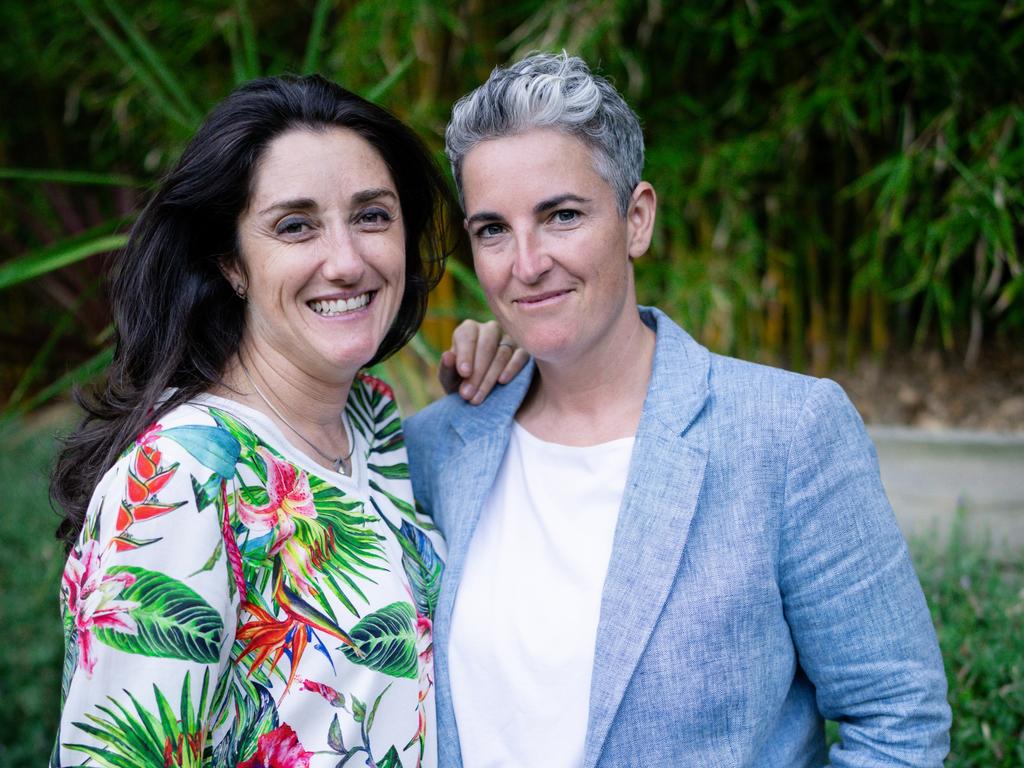
To join the conversation, please log in. Don't have an account? Register
Join the conversation, you are commenting as Logout